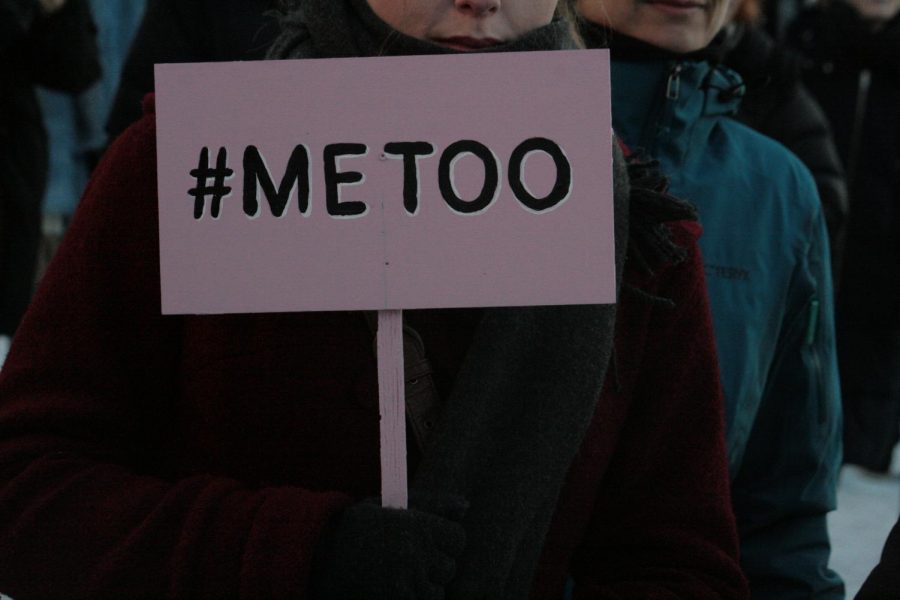Kesha and Dr. Luke scandal opinion
February 24, 2020
A #MeToo definition: a movement beginning in 2006, but coming to light once celebrities joined in, manifesting their own experiences with sexual assault. For example, Kesha and her Sony producer, Lukasz “Dr. Luke” Gottwald.
The severity of this case only angers women because it involves a man with control over a woman’s career who exerted that power to exploit the woman for a long period of time.. For example, allegations of rape and drugs labeled “sober pills” were a fraction of what Kesha endured. The misuse of power can be attributed to both men and women in certain cases.
Caitlin Luetger, adviser of the Feminist Alliance at COD remarked, “It is important to understand that women are not the sole victims and men are not the sole perpetrators of sexual violence. Anyone can be a rapist, and anyone can be a victim.”
Luetger also shows how important it is for victims to be heard, believed, and respected in order to end the safe place of blame. To elaborate, the normalization and trivialization on sexual assault in society today. She also adds in the perpetrators hold more power over victims when they know everyone is keeping quiet. Speaking up ends that stigma and only reap benefits.
According to rainn.org, which tracks sexual violence, “On average, of every 1,000 perpetrators that are reported, 995 will walk free.” Dr. Luke just so happens to be one of those people. Suffering the consequences of losing his job at Song Music Production, Gottwald still faces no charges of rape or drugging Kesha.
Aimee McCall, an avid feminist and supporter of the #MeToo movement said, “Hearing that she dropped the charges just because she couldn’t afford the legal fees and the emotional heartache really shows just how much men can get away with. It genuinely angers me to the core.”
Kesha first reported the crimes of sexual, mental, and physical abuse in 2014 that ultimately led to Dr. Luke filing a countersuit for defamation. Dr. Luke had no evidence to back his claims, so he filed a lawsuit for something invalid to try to deflect from the fact that he was being accused of abuse and had nothing to delegitimize Kesha’s allegations.
“I genuinely do not see why people commit these crimes and then think that nothing is wrong until they are found guilty,” McCall said. “Everyone is trying to get away with something, and pointing fingers seems like the only option.”
As the case moved from California to New York, Kesha faced a choice between two of the things she wanted most in the world. She could pursue the quest to have Dr. Luke to justice or take his offer to release her from the contract with Sony both had signed.
Without hesitating, Kesha said she would rather draw it out and speak the truth than hiding what really happened any longer. Dr. Luke tried to bribe his way out of facing the consequences of Kesha’s allegations to save his image.
Mia Mote, student and active follower of the #MeToo movement said, “I understand the importance of the subject and awareness, but showing just how complicating these cases can be just shown why so many women choose to stay silent. I absolutely dread the fact that he is able to file a countersuit just because he fears being caught.”
Eventually, Judge Jennifer G. Schecter of the New York Supreme Court had made Kesha’s pursuit of justice more difficult, ultimately ruling in Dr. Luke’s favor. Kesha claimed that Dr. Luke raped Katy Perry as well, which proved to be incorrect, leading Dr. Luke to press charges against Kesha once again with defamation. Judge Schecter also stated, “…[Kesha] could be held ‘vicariously liable’ if a jury finds that her lawyer and public relations firm made defamatory statements on her behalf…” to the New York Times in 2016.
According to Luetger, “[This case] is not about just rape, but about power related to race, gender, socioeconomic status and mental health.”
In my opinion, Judge Schecter is on Luke’s side looking for ways to make this case extremely difficult for Kesha. While Luke had no evidence to prove his innocence, his lawyers and Judge Schecter did everything in their power to avoid pressing charges against him so he wouldn’t be “defamed.” Understanding that the judge had overlooked the outstanding themes of this case only shows the stress endured and lack of urgency the legal system places on cases like this.
“When it comes to fame and worrying about name rather than action, that’s when you know that they understand what was wrong but refuse to take responsibility,” added McCall. “Granted, it absolutely is devastating he doesn’t receive jail time, but at least he lost his partner with Sony Music.”
Ending in February of 2020, that same judge stated that Kesha “defamed” Dr. Luke in 2016, but did she really? In my personal opinion, when it came down to whether his name or action was more important, I was finding myself siding with the severity of his actions rather than name. His consequences are not enough, but the universe always evens itself out.


















